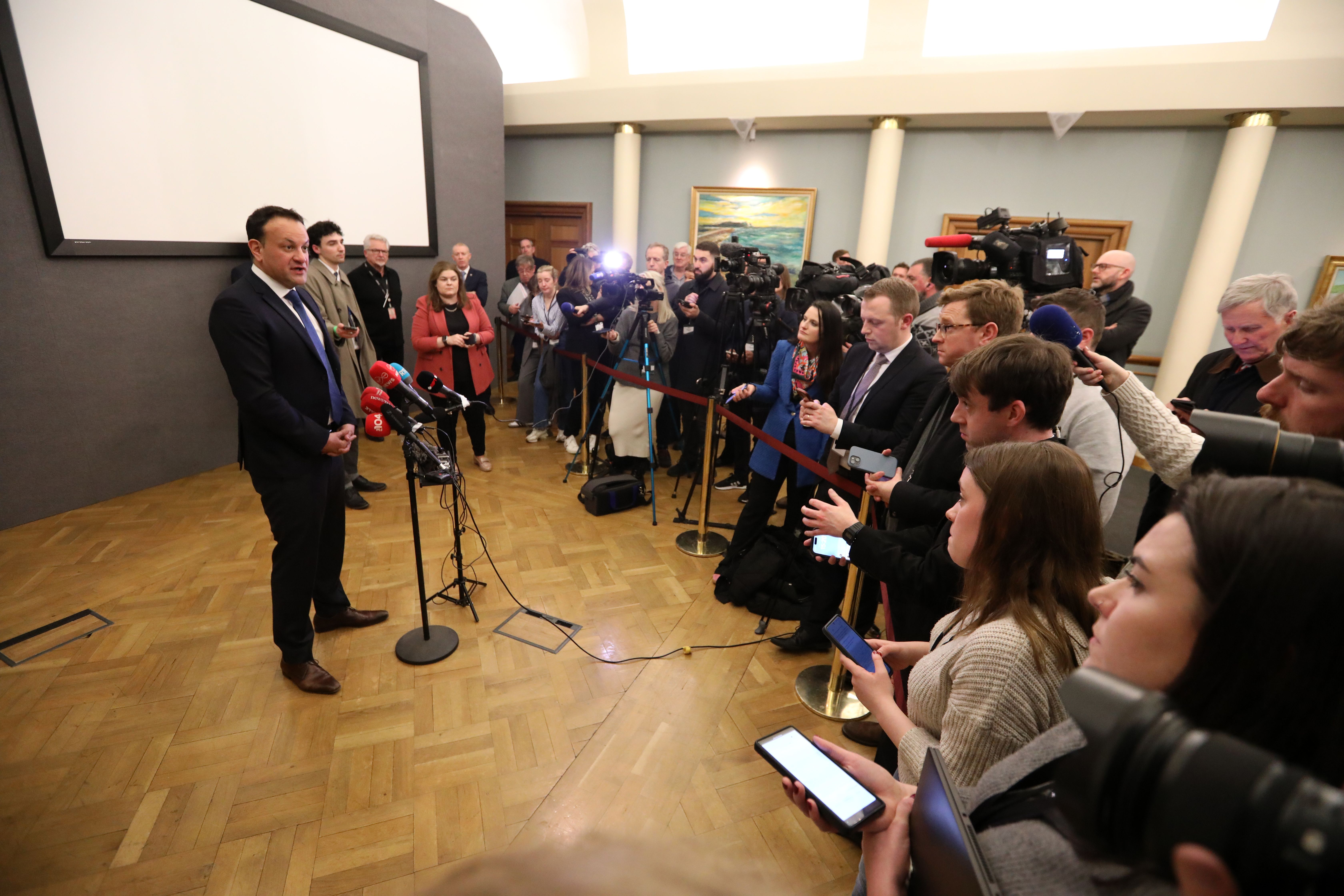THE referendum results in the South on definition of care and family teach us much, but mainly: How not to run a referendum.
The referendum on the face of it looked benign. It would remove a reference to women’s role in the home as a key support to the state, and delete a statement that “mothers shall not be obliged by economic necessity to engage in labour to the neglect of their duties in the home”. And voters were being asked to remove a reference to marriage as the basis “on which the family is founded” and replace it with a clause that says families can be founded “on marriage or on other durable relationships”.
How often was the Irish Constitution slagged off for having those weird and unique references to families and marriage and the role of women in in the home? Growing up in working class Dublin, there were families of all colours and complexions. Single parents, cross-generational families, families broken by state institutions. Much of that experience was at one time brutally hidden and neglected, but Ireland has since changed. The Constitution of course needed to catch up with modern realities. But the Fine Gael/Fianna Fáil government didn’t listen to people raising complex issues with their obscure wording.
There was a time when if one partner had a job that was sufficient to support a family, and care could be provided at home. That feels like a mythical place now, with pressures of bills, mortgages and now childcare at the top of any list of political concerns. Many worried that this wording might make the ever-increasing pressure on mothers and families even worse.
Taoiseach Leo Varadkar says Government "respect" the referendum results and "take responsibility" for them #Referendums2024 pic.twitter.com/O6qL4B16YV
— The Irish Times (@IrishTimes) March 9, 2024
Care for the elderly and for people with disabilities is likewise overwhelmingly carried out by women in families. Many expressed concern that the suggested wording would render them invisible and take away the tiny rights they do possess – which is not enough in a country that refuses to ratify the UN Rights of the Disabled.
Early on, some of the most progressive, radical and informed people on the island started to express disquiet about the referendum wording – that it could set the rights of women and the vulnerable back years. A preposterous, irrelevant part of the Constitution might be better left alone if the alternative was to insert confusing new articles which might actually reduce protections. They were sadly not listened to.
Working class areas of the country who voted overwhelmingly for same-sex marriage and for women’s health care saw these out of touch and potentially harming changes and they either stayed at home or said no.
This is not, as some try to project, the return of Dev’s Ireland or Cardinal Control. It is not either a massive right-wing vote, which some are trying to spin it as. Quite the opposite. It is an electorate that will not be taken for granted, which insists on long-term protection and inclusion and refuses to accept spin rather than substance. The vulnerable on this island have been treated too badly for too long for risks to be taken.
The lesson is clear for unity advocates, though: participative and inclusive dialogue with all interested parties is essential. The coming unity poll will be the most important in our lifetimes. The privileged and slow to listen cannot be trusted with it.









